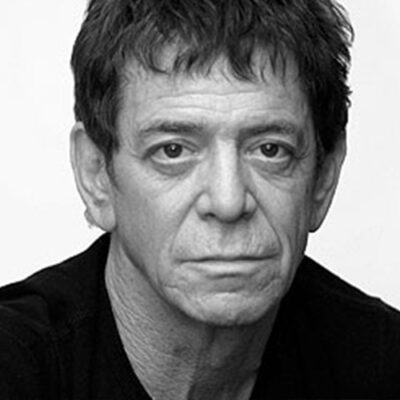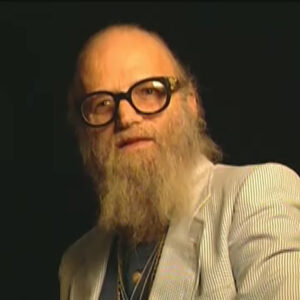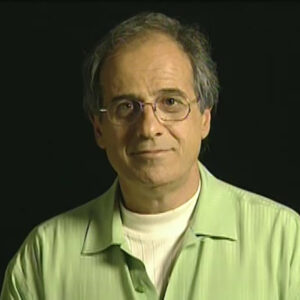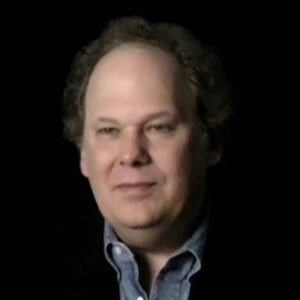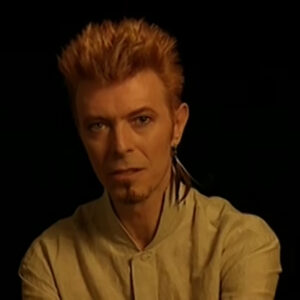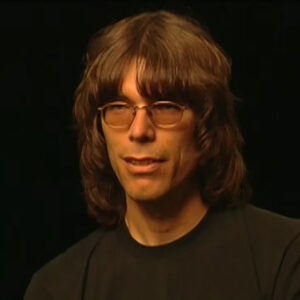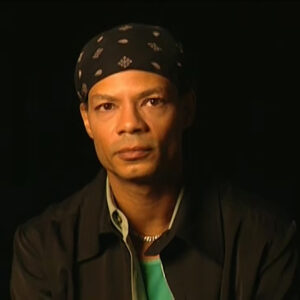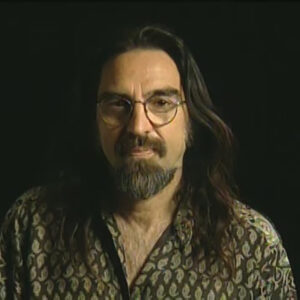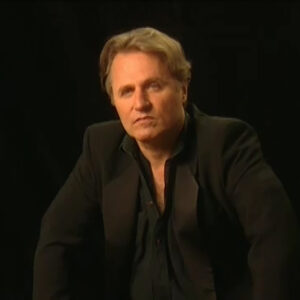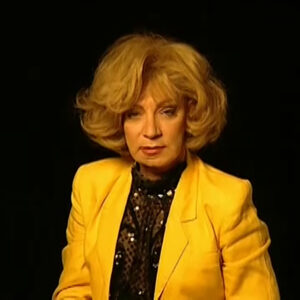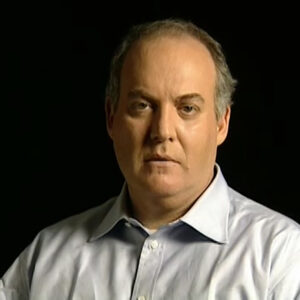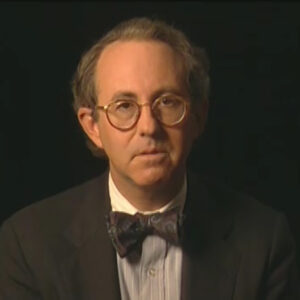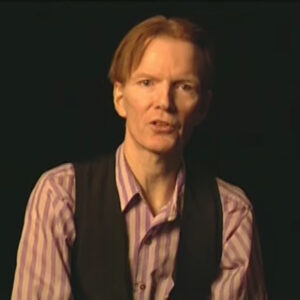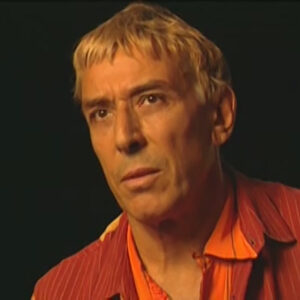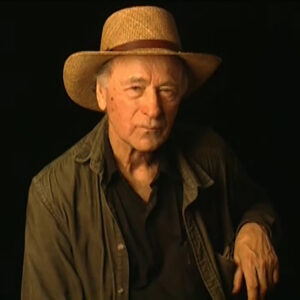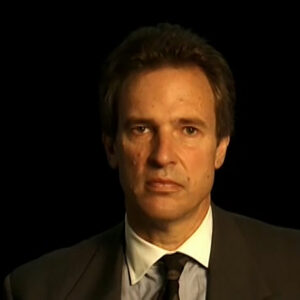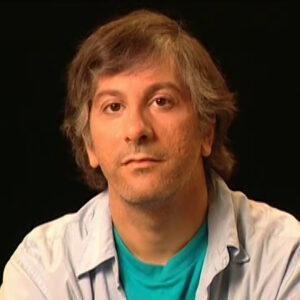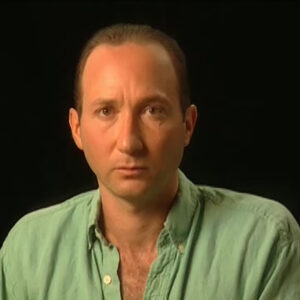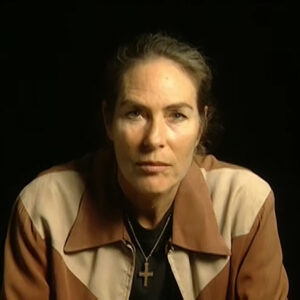Speaker Well, after the underground broke up, you had a situation where everybody, I guess, in that bad, but especially John Cale, Lou Reed, were attempting to establish themselves as solo artists in Berlin in 1973, was one of the first things that sort of proved it. Lou had his chops together on his own. And it was a very strong album. And it was, as I recall it, without intimate refreshment. It was a kind of song cycle depicting in dramatic terms, a love affair in Berlin, which, of course, symbolizes to everybody sort of Christopher Isherwood style decadence. I thought it was a really good album. And it really helped in terms of not that he really needed it, but in terms of his commercial and critical credibility as a solo artist.
Speaker Also interesting the way it’s such a commercial success. I see much more artistic winners.
Speaker Transformers haven’t wanted to wear it. Right, right. Right. Okay, that’s a good point.
Speaker Well, I mean, look, when you’re establishing yourself as as a solo artist, but you’re also doing so in the context of the New York art world and the kind of artistic cachet that the underground had and so forth. You need to establish yourself both commercially in terms of hits and popular appeal, but also in terms of credibility. And certainly if Transformer was his commercial cachet, then Berlin was his artistic cachet.
Speaker Can I have your line about Kraftwerk?
Speaker Yeah, about that. But that was from metal machine music. Do you really want that line? Exactly. All right.
Speaker Anything about the. Singing Oh, lyric writing.
Speaker Writing, You don’t get down here.
Speaker Here it comes. All right. Shocker. Very well.
Speaker Lou Reed came up to public consciousness as a kind of street poet of downtown underground life. Obviously, that image was honed in the Warhol context. And when he went on as a solo artist, he had to or chose to continue that. Now, partly that’s I’m sure, because it was a reflection of his actual life. Part of it. I always personally felt was kind of an image that he felt compelled to sustain, whether it reflected his real life or not. In other words, things like pretending to shoot up on stage and all of that. Was he shooting up on stage? I think not. Was he a junkie? Who knows? But the fact is, is that he had to maintain that image. I myself felt that he really oscillated and kind of interesting ways in the early mid 70s between a really harrowing and successful projection of that image or of that reality. And it kind of forced projection of it. That didn’t entirely always ring true. But certainly on Berlin, it rang very true.
Speaker Wonderful, wonderful. Um.
Speaker Let’s go to that machine music.
Speaker Here’s a story about that record contract.
Speaker Serious, very serious look, Lou Reed is is an ironist and perhaps his layers of irony are unknown, even to himself. Who knows what his motivations were? Who knows whether if he had utterly contradictory motivations, they weren’t both true. And who knows whether he might have been serious about it, but erected a story about record contracts and or trying to pull a fast one on rock intellectuals or whatever to excuse any attacks against his commercial fans for being a pretentious twit. I have no idea. I don’t care. I thought metal machine music was a really interesting record, but you had to hear it in the context that I was hearing it. And rightly or wrongly, I mean, to some extent, one was hearing it in the context of the various German progressive electronic bands of the time. That was why in my review of it for The New York Times at that time, I said that it made Kraftwerk sound like Chuck Berry, but it also was dense and complex in a way that made kinship to contemporary electronic music or to modernism of a symphonic kind that was full of clouds of closely related pitches. I mean, things like the music that the polls were writing at that time, like Penderecki and Let US Orlovsky. And those people were very close. And the effect is a Marcos’s electronic pieces like bullhorns were were in the air at that time. What exactly are the technical ingredients of metal machine music where? I don’t know. But what it sounded like was a kind of roaring, angry blast of sound made up of a miniscule number of tiny little events, which if you concentrated on and rigorous intellectual purity or because you were stoned, made sense as a kind of teeming microcosm. You know, Lou, at the time was given to cosmic statements like you can hear all of Beethoven and metal sheet music, which is I did require I say Lou was given at the time to sort of cosmic and self aggrandizing statements to the fact that you could hear all of Beethoven if you really listened close enough to metal machine music. I don’t know. But I thought it was a trip and it kind of interesting sense. And it certainly prefigures the kind of electronic and new wave and trance effects that you hear routinely in clubs now. So I thought it was a real interesting album. Do I listen to it all the time? No. Did I respect it when it came out? Yes.
Speaker Yeah.
Speaker It’s New York. It’s New York ambience. You know, if we go.
Speaker Keeping in mind what you just said.
Speaker I’d like you also to find what sound machine is extreme guitar and all that. What is really charged? Bass drum. Give me a statement that goes really one way or the other.
Speaker Well, that’s the way I would look at it is is that a lot of people from the Grateful Dead Cayle to, you know, to flip to a million other people have been interested in the kind of feedback and potential of the electric guitar. But in general, kind of walls of sound and and densities and so forth. And I think metal machine music is an interesting example of that with whatever spirit it was created. However, is that typical of Lou Reed sound? I don’t think so. I mean, it’s typical of the kind of effects that were common in Velvet Underground music. But one usually credits Cale for most of those, rightly or wrongly. I mean, the basic thing musically that distinguishes Lou Reed is the sound of his voice. And I personally have always been a believer that rock lyrics on the whole are less important to the success of a song than the sound it makes, whatever constitutes that sound. Now, Lou Reed’s case, since the voice is right out there, clear as a bell, you can understand the lyrics. The lyrics do mean something. I mean, you know, these pictures of underground life in the late 60s and early 70s that carried a charge and an image and an impact that obviously contributed to the effect of the music. But for me, what is utterly distinctive about Lou Reed, more so than his use of the basic rock band format or his guitar playing or anything is the sound of his voice. There is this I mean, frankly, I think he always sounds just a hair out of tune. Yet he’s not really out of tune because he knows what he’s doing. But there’s this kind of centralists quality to his voice when it comes to pitch. This unease in the sound of the singing, which contributes to the unease and the overall projection of the image. It’s funny to think of, but they’ve been great examples of poets who had a lack of pitch center. The most famous is Yates. If you listen to Yates read, he sort of shakily chivalrously all over the map in terms of pitch quality. Yet it’s the most evocative thing you ever heard. And I think I think Reed get some of that quality of eerie instability in the very way he sings. Now, he’s a good singer in terms of rhythm, articulation, snapping it out. Rock and roll impact and all that sort of stuff. But a lot of people do that. What he does is convey this timbre of the voice.
Speaker Well.
Speaker I’d love to go into a little bit about hug, because I could if you’d look at 75 with balance sheet music came out and 10 that we’ve talked to Kirsten and Renaldo Sonic Youth and.
Speaker Talk about how important it was to lose a big star putting out this record and then The Godfather. Maybe it’s too extreme to say he’s the godfather, but it’s certainly not fair to say.
Speaker Well, I. I would say he had a big influence, but I wouldn’t peg at all metal machine music. I mean, I think it was know I would say that Lou Reed had a big influence on the evolution of the punk scene in New York in the mid late 70s. But I wouldn’t pin it all on on metal machine music. In fact, I think it’s interesting because the kind of stuff that Sonic Youth does and the sort of guitar, distortion, explosion stuff was really not so much a part of mid late 70s punk as it was of the evolution of that music in the 80s and the impro people like Henry Kaiser and and Frith and those people, that that is where that started getting picked up. I think that in the mid late 70s, Lou Reed’s persona as a rebel or CB, as a rebel and as a as a punk artist and to some extent the glam rock thing fed into especially bands like The Dolls and the Ramones and those kinds of bands. Less so Talking Heads, less so Blondie. But but when you got away from Debbie Harry, the scruffy guys in the back, they were they were influenced by Lou. And so I would think that his whole sort of status as a kind of archetypal underground rebel with roots in the Beats, Roots and Warhol and all that, that had an influence on the evolution of the New York punk scene and hence on London and L.A., more than metal machine music, at least right at the time. But the fact is, metal machine music did become a kind of cult record and fascinated people who were interested in sheer guitar, distortion, feedback, freak out kind of sound wonderful.
Speaker Can you give me a line?
Speaker Say that again.
Speaker Look at other gave you. I’ll give you a lie, Lou. Lou Reed was to the evolution of New York punk as Elvis was to 80s and 90s Vegas lounge style.
Speaker I don’t know what that means, but it sounds good.
Speaker Let’s start with a place for media development.
Speaker Well, OK, sure. History. Not since the writer’s break. No. I mean, look, I moved to New York in late 1972, and I was in the same system before that. So that the Velvets as a kind of happening scene, that you’d go to clubs in here as they evolve and stuff was not part of my life. So in a sense, I came in on that whole story after the Velvets had broken up. But looking at it sort of historically and then I did hear the reunion in 94 four, I think was four, and I heard the Edinburgh concert, you know, they were a crucially important band.
Speaker And the context which they emerged in, quite apart from Warhol, who was the scene and exploited them and all that, and they spotted him and it was mutual. But there was another context going on all during the mid 60s out of which they arose, which was the interaction of classical and experimental avant garde music, rock and roll and technical experimentation. And there you have to look at an organization called Yati Experiments and Art and Technology that came out of the Bell Labs in New Jersey, a guy named Billy Kluver. And this was a big thing in the mid late 60s in New York. And all kinds of people, Yoko and all kinds of people got involved in it. And Kael was definitely involved in it. I mean, I’m not this is a show about Lou Reed and I’m a big admirer of Lou Reed, but I’m also a big admirer of John Cale. And I’m not taking sides on all the various tensions that have happened between them. But Cale’s role in the evolution of that band, having been trained classically in London as a violist and having come over to Tanglewood and having worked with Xenakis and Tanglewood and and with Lamont Young and then coming down to New York and getting involved in this sort of art scene with Walter Demery as the original drummer and and and all of that, it really shows that the origins of this band were very much linked up with the art scene and with the fluxes scene and with the with the whole technology. Classical rock interface that was going on at that time.
Speaker So give me a simple statement. Well, there you go.
Speaker Well, let let me let me give a shot at it. I mean, the Velvet Underground was the most important sort of late 60s underground New York rock band. Of course, they had minimal impact commercially at the time. Their impact commercially and artistically came after their existence. In a way, they were sort of avatars of hipness, especially under the Warhol umbrella.
Speaker At that time. But they sunk into people’s brains and then the influence blossomed in the 70s and 80s and 90s. I think that what you can say about developers, among other things, is that when they reunited for that European tour memorialized on one record and no doubt a trillion bootlegs, you know, first of all, on the one hand, they sounded very much like they had sounded back when, in other words, they didn’t make any great effort to sort of update their style. And among other things, you know, you always think of it as a Reed Cale band with these people backing them up. But Morrison was terrific and Mo Tucker’s drumming was unbelievable. I mean, it was really fascinating to read reviews, including my own of their reunion. How, like her drumming suddenly became this influential thing that had defined an entire generation of punk drumming. It’s sort of wham wham, wham style of drumming. I mean, if she was is the master of it. And but that’s not taking anything away from reader Cale, who were interacting just as powerfully as ever. And they interacted pretty powerfully in songs for Drella as well before that. But anyway, I the Weather Underground had a huge influence, but the Velvet Underground was a terrific band. I mean, you could listen to the music. You got off on it. And people did. And they made two pieces of it and went off in different directions, like ants carrying off crumbs of bread. But the actual experience of encountering them very rapidly.
Speaker What I mean, that was great.
Speaker I mean, they were a great band and people enjoyed the concerts. I mean, that was bottom line, even if they weren’t selling trillions of records in the 60s. But then, like ants carrying off crumbs of bread from a half eaten loaf. All these little ants in the form of future rock bands went off to their garages and created new bands and created new evolutions. And this has been going on ever since and continues to go on.
Speaker Please read for me.
Speaker Well, that’s that’s a pretty big question, because how are we relating him to, you know, Stravinsky’s late period? I don’t know. I mean, why don’t we. I mean, why. Yeah, why don’t we stick with. We look in the in the late 20th century, barriers started coming down between heretofore sacrosanct kinds of music. Serious music, modernism, electronic experimentation, rock and roll, jazz and so forth. Lou Reed obviously was one of the main guys with the hammer knocking down the walls. He also is a very, very powerful performer. To what extent this is true for the whole genre of singer songwriters. Not that Reed would particularly appreciate the folky connotations of that phrase, but people who perform their own music. Then you have to wonder to what extent does their music live beyond them? It’s not really a real question in this era of recordings, which live on presumably forever. But Reed is a very it is an kraddick and powerful performer. And so therefore, he helped erase the barriers that were between the abstractly considered song of the kind that a Tin Pan Alley songsmith would turn out to be sung by anybody who chose to. And the indelibly interpreted song, which is almost inconceivable from his rendition of it.
Speaker Which leads to Time Rocker. Tell us about your time right around.
Speaker Which is great. Terrifically well shot. I hope it’s released commercially at some point. I mean, as a as a you know, as a tape, you can buy a piece because it’s really great.
Speaker We’ll talk about that later. We hope so. Thank you. So just let’s talk about time record.
Speaker What what did what was here? I said I’d love a statement about these operatic albums of those, and he continues to sort of do it. You can go look back and Berlin, you can even take New York that way.
Speaker Certainly.
Speaker Well, I mean, look.
Speaker Ever since the underground, certainly since Berlin and the early solo albums, there’s been an implied theatrical context. I mean, a lot of people started making concept albums. The concept albums were linked together in some way. It wasn’t just a collection of potential singles. It was a statement extending over time. And in that sense, Time Rocker as an album of Luse, which I’ve not heard as an album. I’ve only heard it in the context of seeing the show, but. Is itself a kind of opera music theater work as it happens, of course. Wilson’s contribution, both in terms of determining the overall shape of it and the visuals, is so powerful. This is true for almost all of Bob Wilson’s work that it’s hard to consider Reed’s music entirely in isolation. Nor should you. In other words, it’s hard to consider Wagner’s music in isolation from the total work of art bargainers phrase. So in that sense, Time Rocker is both a Gustaaf that includes the visuals in this plot and the actors and so forth. And it’s an album or will be an album. I forget whether it’s gone out yet or not. I must say that in listening to it, I was fascinated by the fact that for these projects that the Talia Theater and Homburg Wilson has chosen to work with two people, Tom Waits and Lou Reed, who are peculiarly powerful and idiosyncratic performers. And then what happens is that you turn over this music to the house band of the Tallia Theater and the singers sing events at German accents. And it’s a very different and sort of strange experience. And I haven’t yet sort of come to any conclusions, not that any are being asked of me to compare whether Waite’s is normally idiosyncratically perform music holds up better on its own than Lou Reed’s does.
Speaker But I do think Lou Reed scores very effective for you to hear voices like.
Speaker Well, like I say, if you took somebody who is like a reborn Tin Pan Alley songwriter like Carole King or somebody. Right. Anybody with all due respect to her modest vocal gifts. Anybody can sing a Carol King song, presumably. I don’t know why picking her out there. A million examples, you know, but of people who write sort of generic straight ahead pop songs, anybody can sing. A lot of people can sing Paul McCartney songs and have done so, whereas waits and read. But we’re talking about reeds. Let’s talk about Reed. Reed has, as I said before, an extremely idiosyncratic vocal timbre and its way of performing and a persona that he projects. And so therefore, it’s interesting. I mean, I don’t think it’s bad. I mean, in a way, of course, the German accent lends the kind of other kind of ominousness to the to the effect that the lack of loose persona you might miss. So in that sense, I thought they were pretty effective songs sung by others.
Speaker Favorites. I can’t remember. I’m not. I heard the tape once. I can’t answer that.
Speaker Give me a very simple who, Robert.
Speaker Is fighting any war all over the world. It doesn’t really anymore.
Speaker The important thing is I’m an admirer of Robert Wilson, so I may overstate the case. I think he’s the most influential theater artist, Robert Wilson. I think I think in my opinion, I think Robert Wilson is is the most important fear audit theater artist of the second half of the 20th century. The term theater artist, a phrase not coined by me, means a director whose role is so director and designer is so dominant that he becomes the sort of leading person in most of the collaboration’s he’s involved in. He often is involved in the creation of the shows. He also is involved of, often is involved in, in shaping the overall thing technically and officially. He’s a designer and a director, but he is such a powerful person and his style is so strong that he’s influenced a lot of people and his work is distinctly his. Whenever you see it. Again, insurers say is, look, Robert Wilson is a theater designer and director over 30 years, he’s created a variety of pieces on his own in collaboration with other powerful people like Lou Reed and also his staged works of dead people like Volkmer, Kulluk and so forth and Shakespeare. He is a remarkably powerful stylist who imprints his own image on anything he touches.
Speaker That’s.
Speaker It’s called the Prisoners Guys is a roster element.
Speaker And Selimi. What was your reaction to lighting up?
Speaker Well, Bob, Chris, go home. I think I can speak for in this case. And I were amused and flattered. We thought it was great. We thought, what better publicity? I mean, in this to take No Prisoners album, as the title suggests, Lou is lashing out about everything you can think of. And one of the things he’s lashing out about his rock critics. And Bob, Chris Kyle and I were reasonably prominent rock critics in 1978. So we got lashed out at. We thought it was swell. You know what? Greater glory, you know.
Speaker Hey, what? Take anybody. We’ll be back by anybody.
Speaker Can you say for me something about the amount about Lewis had, like it’s 20, just in your own words.
Speaker Twenty two solo albums were for village albums and half a dozen other lives, albums and steps substitute. Put that together so I can use you to. Do you want the actual numbers? Yeah. You can say they were trying to solo albums or they were four Velvet’s. The original for Velvet’s albums. And then there was.
Speaker Oh let me try to save my own way. I mean.
Speaker Like all or most successful people, Lou Reed is very prolific. He’s a hardworking person, you know, genius, inspiration, perspiration. And he’s put out by now a very large body of work. It’s kind of fascinating when you think of his image back in the late 60s, somebody was going to die tomorrow of an overdose that he is, in fact, put out by ace research assistant tells me. Twenty two solo albums and four official velvet albums and their reunion velvet album and the songs for Drella and a bunch of other special projects projects. And he’s a hard worker. He’s putting out art all the time. Now, the fact that it happens to sell records, sometimes more, sometimes less is to me meaningless. I mean, it’s art and it sells this to say to you that this could go in if you wanted. Right after when I said that I wasn’t around for the actual velvet stuff in the late 60s, you know.
Speaker OK, just give me something about that.
Speaker OK, let me just say it and then you tell me if I’m saying all right. I first came to New York in late 1972 as a journalist. I was a classical music critic for The New York Times and remained one right through till nineteen ninety one. But during the 70s, I was also the chief rock critic of The New York Times. And so my direct involvement in this scene was from 72 to 80. And that’s when Lou’s initial solo period and metal machine music and so forth were at their full height.
Speaker Carol. Yeah. Yeah. Okay. Can you talk a little about glam rock?
Speaker This simple statement about glam rock, rock and roll on this show is that.
Speaker I mean, look, what is glam rock could be a variety of things musically.
Speaker I mean, the dolls played hard rock and other people played art, rock and and so forth. I don’t feel you about glam rock, which was a kind of more or less muted drag at rock. Was that it? Change the basic rules of the game. In the 60s and early 70s, Rock was supposed to be sincere. In other words, pop music was this of the parents generation was this phony stuff. And the rock people were coming along and telling, speaking directly to kids and telling them sincere things. The glam rock people came along, said, wait a minute, this is it’s role playing. It’s it’s theatrical. It isn’t necessarily, quote, real close quote. It’s a show. Now, this changed a lot for the better and for worse. It didn’t blow away the sincere folk who continue strumming away to this day. But it opened up the possibilities to a kind of theatrical and role playing, which really hadn’t existed, at least overtly, in rock before that.
Speaker So just give me a very clean statement about rock and roll. 50 years old starts at a young person’s art form.
Speaker Well, in terms of the audience, it started as a young person’s art form. OK. Oh. Oh, OK. Rock and roll is 50 years old and hence middle aged. Yet it started as a young person’s art form. And it remains one in terms of its audiences. Yet the natural aging promise process. If you eliminate those who got killed by various excesses or accidents, you’re left with a bunch of people in their 50s. And I remember reading an interview that I just did with Mick Jagger. I did it in 1975 and he announced that he would kill himself if he were caught singing satisfaction over the age of 50. Well, bye bye, Mick. I mean, the fact is, is that it’s a reasonable thing to have musicians in a genre age and to express different insights and so forth as they age. What’s slightly peculiar about rock and roll and its marketing is that it’s still marketed as a mass commercial form to teenagers. And yet an enormous number of teenagers, bereft little creatures that they are, are still clinging as their idols to people in their 40s, 50s and Evan Protector’s with Charlie Watts 60s. And so it’s a little weird in that sense. On the other hand, it’s perfectly legitimate as performers and as artists to continue expressing your art in the art form that you chose as as young people. It is. The other peculiar thing about rock and roll, of course, is that it’s based on the notion of defiance and rebellion. And that’s a little harder to sustain when you’re middle aged and have kids and bank accounts.
Speaker And even if the stock market is crashing today, one of the ways we think ending is we have this great Charlie Rose where he talks about, well, how long can you continue being a rock rock musician?
Speaker Well, he says, let’s rephrase that. And he says, well, lead up to that.
Speaker Rock and roll is based on defiance. But rock n roll is the kind of music and music is practiced by people well into their old age. I mean, the classic model for rock musicians is blues performers because the genres are fairly close and people like Muddy Waters at all can go on forever. And nobody cares that they’re old. In fact, they appreciate the kind of gritty wisdom that age brings. And so something like that could very easily happen to Lou Reed.
Speaker Any thing else? Karen?
Speaker It took up pretty good shape.
Speaker Well, an anecdote about meeting the first.
Speaker Were you there?
Speaker No. I don’t know. Now, I don’t mean. Yeah. The most vivid interviews I have with meeting Lou Reed were going out for pizza with him two years ago. I don’t. I don’t know. I didn’t hang out with rock stars. I would come in, I’d interview him and I’d leave. And I can’t remember under what circumstances I might have interviewed Reed if I didn’t. So the answer is probably no. Not back when. Unlike Legs McMeel, I didn’t hang out on the scene, you know, or think that I was making it up.
Speaker Anything else you want to say? Are there any other music of his? Move your favorites that you talk about?
Speaker Well, I don’t mean to in any way denigrate his career in the last 30 years, which I think is strong and interesting and varied. But those underground songs really, really hang in there. And that was what was so really fabulous about the reunion and what makes Sterling Morrison’s death all the more tragic. Quite apart from whatever tensions exist between between John Kaitlynn and Lou, because they made magic together, those people and that.
Speaker Can you talk a little bit about the New York? Anything in there?
Speaker No. You told me not to bother. Listen to it again. I mean, I don’t want to make comments about something. It isn’t fresh in my brain.
Speaker So anything else I think is really we need to say, again, you know, the only thing.
Speaker But the point is that the point I was making is that he has a persona and as a sort of leather jacket clad rebel and so forth, he had an influence on on the Dolls and on the Ramones, but less so on the talking heads and, you know, television. I did mention Emma, you know, I mean, he had an influence on Patti Smith, but he either was punk, considered a different kinds of bands. And you can’t make the point without naming the bands.
Speaker Make the point about his influence was.
Speaker All right. I think I can do. OK, go ahead. Shall I do it?
Speaker Yeah. I need to stay here.
Speaker Why what. Why come about.
Speaker Well, it’s company like look. Okay. Right. I mean, now look.
Speaker Punk rock in New York, which preceded London and L.A. by a couple of years, seems to me I can’t speak for the broader societal issues. But in terms of rock and roll, it was a reaction against pompous arena shows less a reaction against Little Rock or glam rock than it was against English art, rock and huge arena shows with cosmic pretentious themes and inflated bathetic, quasi classical melodies and and so forth. One is talked about metal machine music. My own feeling is that metal machine music’s real influence hit home more in the 80s when you got into the sonic exploration of people like Sonic Youth and all of the guitar improv people. Lou Reed’s influence on the actual punk scene in seventy six, seven, eight was probably more on be leather clad rebels subsection of punk than on the more self consciously minimalist or art rock bands. But it was an influence. But I think the influence in the short term was the persona more than sonic exploration.
Speaker Now, I mean, I have several, so, I mean, you know, OK.
Speaker What if I’m a man? Probably my favorite.
Speaker You know why? Well, because it sets up a sort of ominous tension. Well, what if a man is a wonderful velvet song? I mean, I don’t know whether I want to say flat out it’s my favorite. But the reason it’s so great is that it has a musical structure of sort of rushing, you know, anticipation and then sort of rushing and heroin to that. It uses musical terminology, as well as the quavering voice in the rebel image to set up a kind of animus sees me ominous, quasi theatrical scenario that you can identify with and be drawn into. I mean, any song which is a miniature form of opera works when the musical devices build and sustain the lyrical images. And that narrative image is created in the best velvet songs do that terrifically well.
Speaker Yes, it’s true.
Speaker Well, I don’t want to say the Velva songs are Lyrid songs. I mean, sure, he may have written them, but the overall effect is a group dynamic and that became very clear there at the reunion. I’m not doing this as a as a Khail partisan. I’m simply saying that MotoCorp strumming and Stirling’s playing and, you know, that sort of atmospheric effect created by KAIL as well as the rock and roll drive and vocals of Lou Reed, all contributed to this effect. But sure, to some extent, since Lou Reed carried on those songs in his solo career. They are Lou Reed songs. And so in that sense, I’m happy to give him credit for it. But you are talking about both in the Velvets and in his early solo career, the creation of songs that conveyed through theatrical means as well as, quote, sincere, close quote means an image of downtown demimonde. It was very powerful and very effective. And this was created as much by musical means, i.e. accelerating riffs or tonal instability in the voice as it was by the lyrics, which is what people tend to concentrate on.

